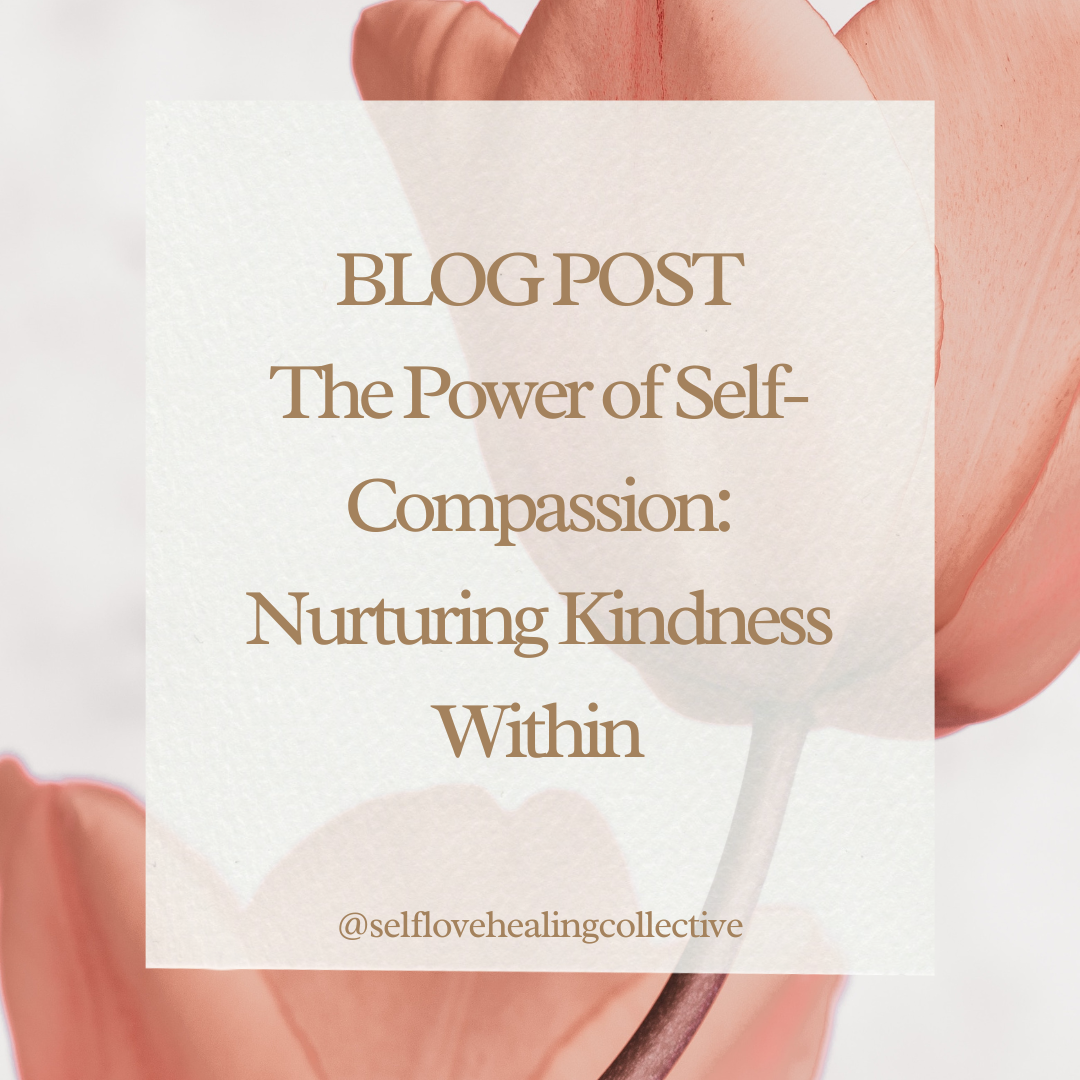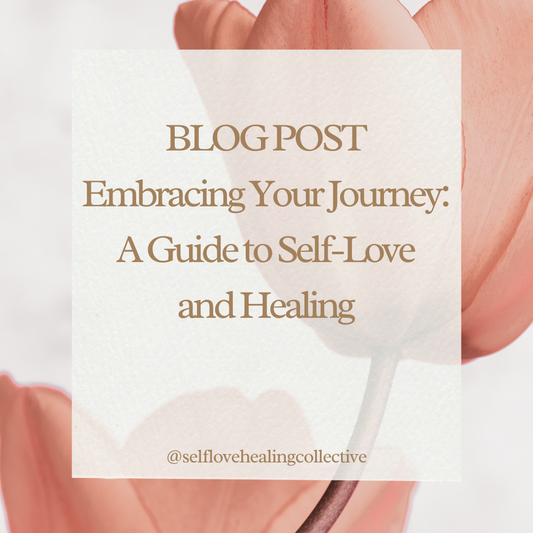
The Power of Self-Compassion: Nurturing Kindness Within
In a world that often sets unrealistic standards and demands perfection, the practice of self-compassion emerges as a radical act of kindness towards oneself. It's about cultivating a gentle, nurturing attitude towards the self as we navigate the complexities of life's journey. In this blog post, we explore the transformative power of self-compassion and the profound impact it can have on our well-being.
Amidst the hustle and bustle of everyday life, it's easy to fall into the trap of self-criticism and self-judgment. We berate ourselves for our perceived shortcomings, our mistakes, and our perceived failures. We hold ourselves to impossibly high standards, constantly striving for perfection in every aspect of our lives. But in doing so, we neglect the most important relationship of all—the one we have with ourselves.
Self-compassion offers us a path towards healing and wholeness—a way to extend the same love, understanding, and forgiveness to ourselves that we so readily offer to others. It's about treating ourselves with the same kindness and compassion that we would extend to a dear friend in times of need.
Practicing self-compassion begins with acknowledging our humanity—the fact that we are imperfect beings, prone to mistakes and struggles, just like everyone else. It's about embracing our vulnerabilities and imperfections with an open heart and a gentle spirit, rather than harsh self-criticism or judgment.
In moments of difficulty or pain, self-compassion invites us to offer ourselves words of kindness and encouragement, much like we would offer to a loved one facing similar challenges. It's about recognizing that suffering is a universal human experience and responding to our own pain with warmth, empathy, and understanding.
Self-compassion also involves letting go of the need for perfection and embracing ourselves exactly as we are, flaws and all. It's about embracing our humanness—the messy, imperfect, beautifully flawed essence of who we are—and recognizing that our worthiness is not contingent upon our achievements or external validation.
But perhaps most importantly, self-compassion is an ongoing practice—a daily commitment to treating ourselves with the same level of care, kindness, and compassion that we would extend to others. It's about prioritizing our own well-being and recognizing that we are worthy of love and kindness, especially from ourselves.
So, how can we nurture self-compassion in our lives?
Start by cultivating self-awareness—becoming attuned to your thoughts, feelings, and emotions without judgment or criticism. Notice when your inner critic begins to rear its head and gently redirect your thoughts towards words of kindness and understanding.
Practice self-care rituals that nourish your mind, body, and soul—whether it's spending time in nature, practicing mindfulness and meditation, or engaging in activities that bring you joy and fulfillment.
Surround yourself with supportive, compassionate individuals who uplift and empower you, and don't be afraid to reach out for support when you need it.
Remember, self-compassion is not a sign of weakness—it's a sign of strength, resilience, and courage. By nurturing self-compassion within ourselves, we cultivate a deep sense of inner peace, acceptance, and wholeness that radiates outwards, enriching not only our own lives but the lives of those around us.
So, as you journey through life's ups and downs, remember to be gentle with yourself. Offer yourself the same love, understanding, and forgiveness that you would extend to a dear friend. You are worthy of compassion and kindness, especially from yourself. Embrace the transformative power of self-compassion and watch as it illuminates the path towards healing, wholeness, and self-discovery.
Amidst the hustle and bustle of everyday life, it's easy to fall into the trap of self-criticism and self-judgment. We berate ourselves for our perceived shortcomings, our mistakes, and our perceived failures. We hold ourselves to impossibly high standards, constantly striving for perfection in every aspect of our lives. But in doing so, we neglect the most important relationship of all—the one we have with ourselves.
Self-compassion offers us a path towards healing and wholeness—a way to extend the same love, understanding, and forgiveness to ourselves that we so readily offer to others. It's about treating ourselves with the same kindness and compassion that we would extend to a dear friend in times of need.
Practicing self-compassion begins with acknowledging our humanity—the fact that we are imperfect beings, prone to mistakes and struggles, just like everyone else. It's about embracing our vulnerabilities and imperfections with an open heart and a gentle spirit, rather than harsh self-criticism or judgment.
In moments of difficulty or pain, self-compassion invites us to offer ourselves words of kindness and encouragement, much like we would offer to a loved one facing similar challenges. It's about recognizing that suffering is a universal human experience and responding to our own pain with warmth, empathy, and understanding.
Self-compassion also involves letting go of the need for perfection and embracing ourselves exactly as we are, flaws and all. It's about embracing our humanness—the messy, imperfect, beautifully flawed essence of who we are—and recognizing that our worthiness is not contingent upon our achievements or external validation.
But perhaps most importantly, self-compassion is an ongoing practice—a daily commitment to treating ourselves with the same level of care, kindness, and compassion that we would extend to others. It's about prioritizing our own well-being and recognizing that we are worthy of love and kindness, especially from ourselves.
So, how can we nurture self-compassion in our lives?
Start by cultivating self-awareness—becoming attuned to your thoughts, feelings, and emotions without judgment or criticism. Notice when your inner critic begins to rear its head and gently redirect your thoughts towards words of kindness and understanding.
Practice self-care rituals that nourish your mind, body, and soul—whether it's spending time in nature, practicing mindfulness and meditation, or engaging in activities that bring you joy and fulfillment.
Surround yourself with supportive, compassionate individuals who uplift and empower you, and don't be afraid to reach out for support when you need it.
Remember, self-compassion is not a sign of weakness—it's a sign of strength, resilience, and courage. By nurturing self-compassion within ourselves, we cultivate a deep sense of inner peace, acceptance, and wholeness that radiates outwards, enriching not only our own lives but the lives of those around us.
So, as you journey through life's ups and downs, remember to be gentle with yourself. Offer yourself the same love, understanding, and forgiveness that you would extend to a dear friend. You are worthy of compassion and kindness, especially from yourself. Embrace the transformative power of self-compassion and watch as it illuminates the path towards healing, wholeness, and self-discovery.


